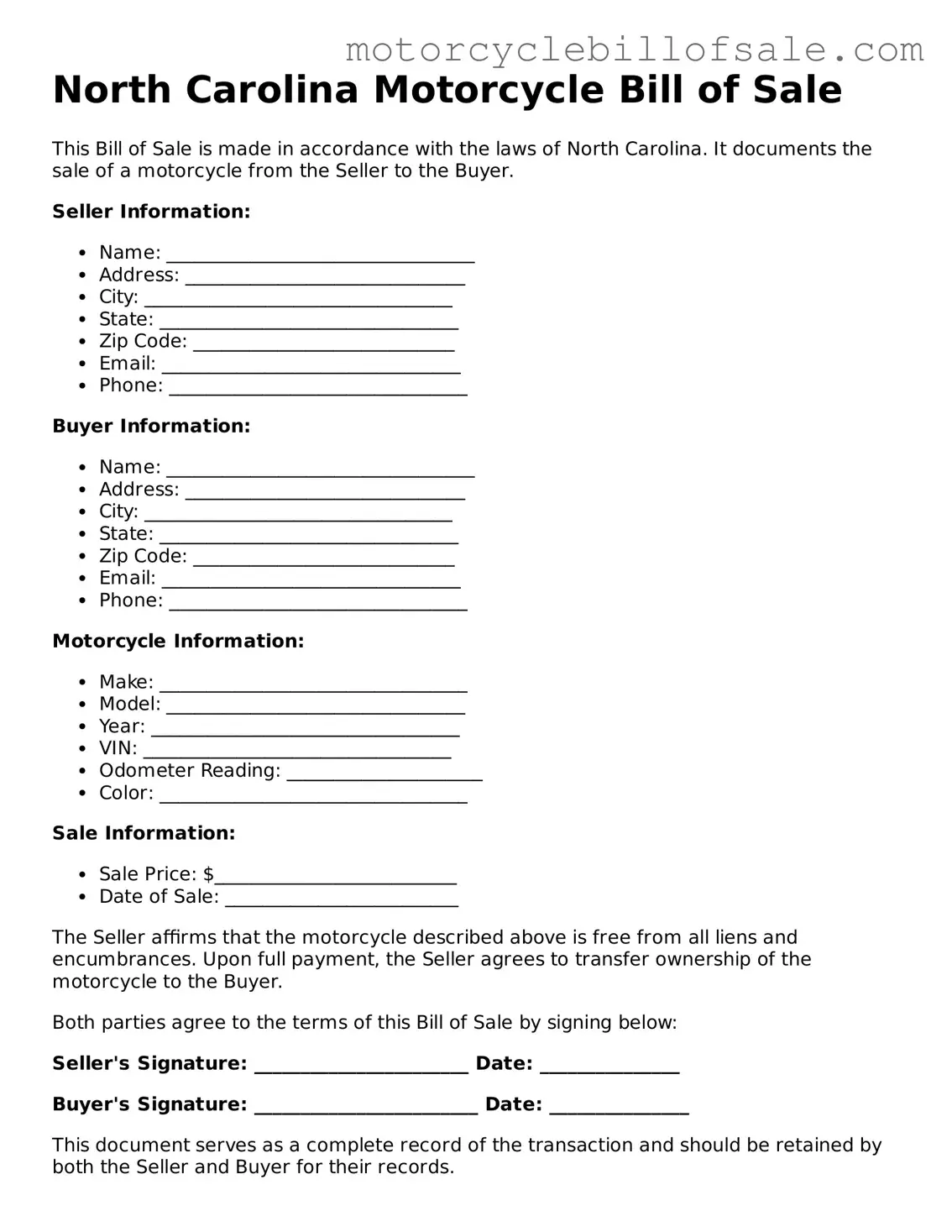Common mistakes
Filling out the North Carolina Motorcycle Bill of Sale form can seem straightforward, but many individuals make common mistakes that can lead to complications down the line. One frequent error is failing to provide accurate vehicle identification information. The motorcycle’s VIN (Vehicle Identification Number) is crucial for identifying the specific vehicle being sold. Omitting or miswriting this number can create confusion and potential legal issues.
Another mistake often made involves not including the sale price. This detail is essential for both parties, as it establishes the transaction's value and may affect tax obligations. Leaving this field blank or entering an incorrect amount can lead to disputes and complications with the Department of Motor Vehicles (DMV).
Many sellers neglect to sign the document. A Bill of Sale is not just a formality; it serves as a legal record of the transaction. Without the seller's signature, the document may not hold up in case of any future disputes. Similarly, buyers should also ensure they sign the document, as their signature indicates acceptance of the terms.
In addition, failing to date the Bill of Sale can lead to misunderstandings about when the transaction occurred. This date is important for both parties, especially if there are any issues that arise later. An undated document may complicate ownership verification or liability questions.
Another common oversight is not providing complete contact information for both the buyer and the seller. Including full names, addresses, and phone numbers is vital for future reference. This information helps ensure that both parties can be reached if any issues arise after the sale.
Lastly, individuals often forget to keep a copy of the completed Bill of Sale. Retaining a copy is crucial for both the buyer and seller, as it serves as proof of the transaction. Without this documentation, either party may struggle to resolve disputes or verify ownership in the future.
